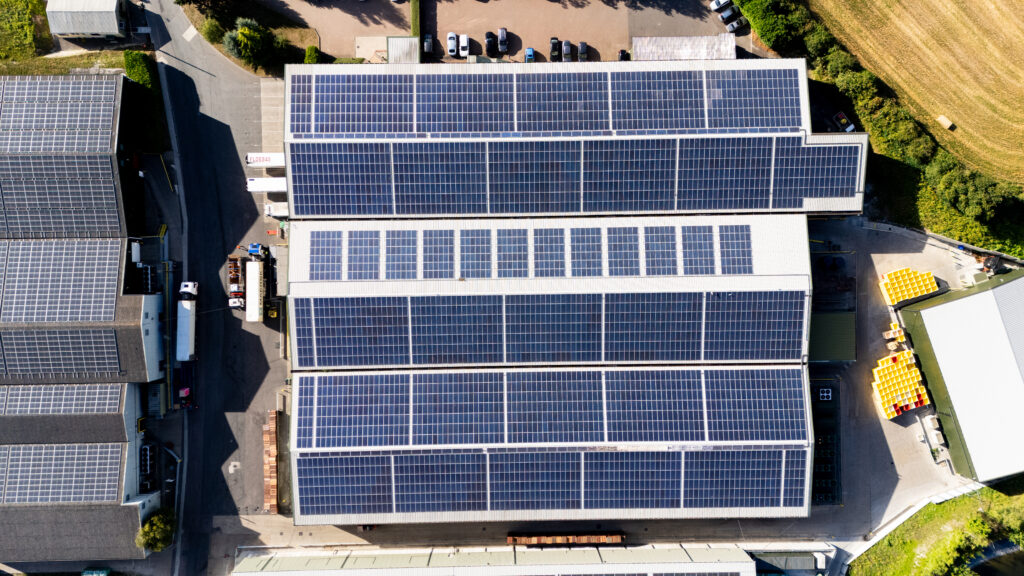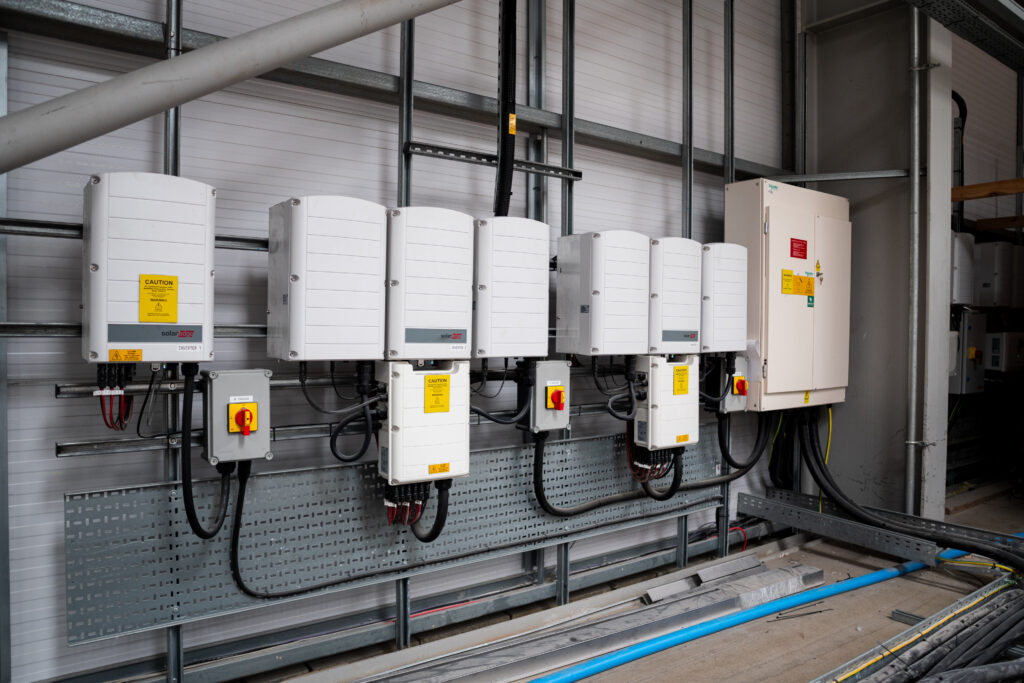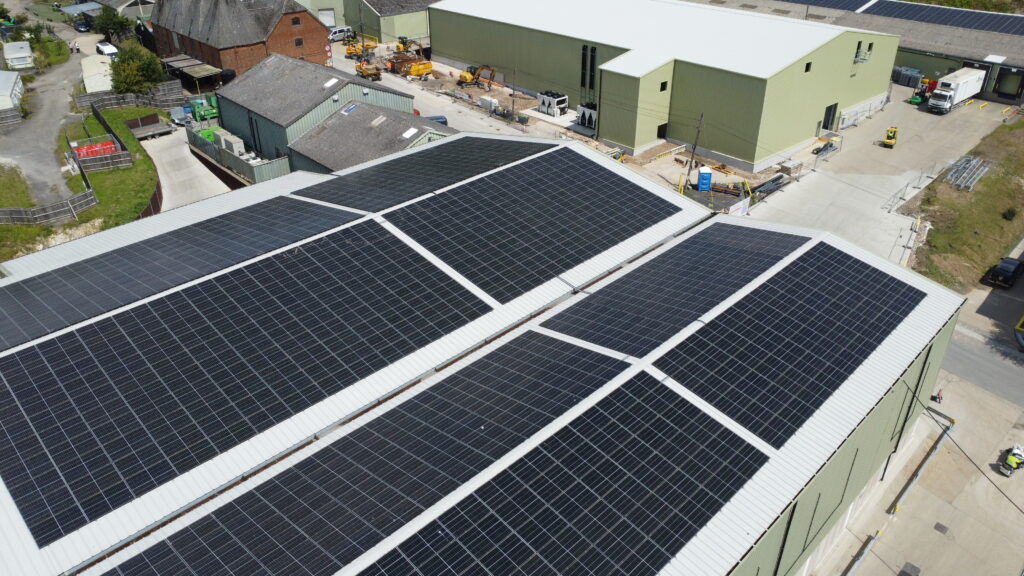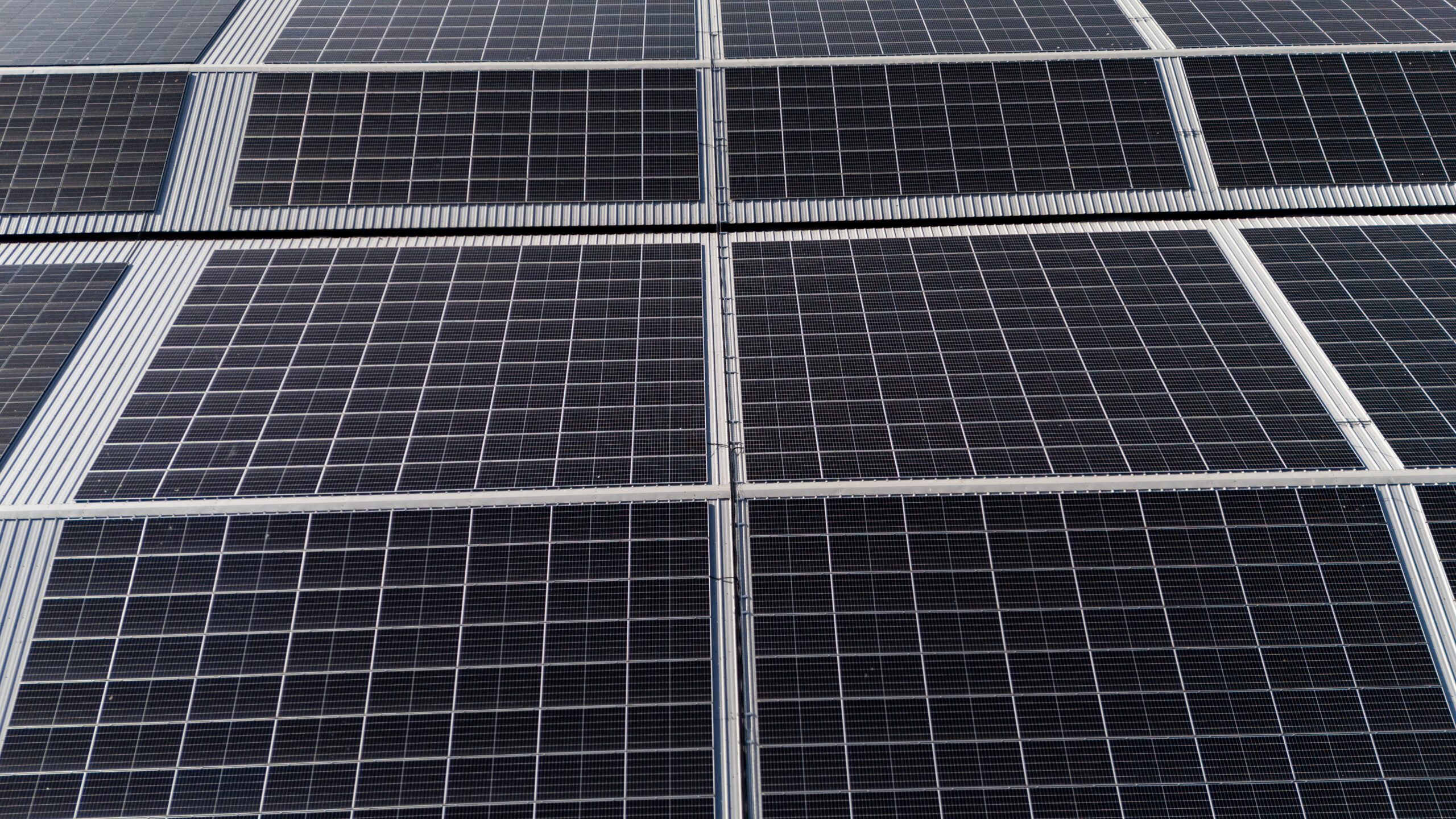Many businesses interested in solar power want to know “how do solar panels work?”.
Highly efficient solar panels offer businesses a remarkably cost-effective, completely sustainable energy solution by converting sunlight into electricity. This thorough guide covers the complete process of solar panel power generation and its important business advantages as a renewable energy source.
A commercial solar power system includes many key components that work together to generate power:
- Sunlight-catching solar panels
- An inverter converts electricity, making it usable.
- A meter measures energy production, and it is used for this purpose.
- An optional battery stores a small amount of excess energy.
- The business has a power distribution system; this system provides electrical power.
A process with many steps and details:
- Solar panels receive a measurable amount of sunlight, even on cloudy days.
- Solar cells produce DC electricity by converting sunlight into direct current (DC) electricity using their photovoltaic (PV) cells.
- Since most businesses use alternating current (AC) electricity, inverters are needed to change direct current (DC) to AC power.
- The business’s electricity supply is sufficient to power all appliances and equipment throughout the building.
- An important amount of excess energy is stored or exported to the power grid and a large surplus of electricity can be stored in battery storage systems or exported back to the grid.
- Surplus electricity can be stored in battery storage systems or exported back to the grid.
This process allows businesses to benefit from clean, renewable energy while reducing electricity costs and reliance on fossil fuels.

Understanding solar radiation & its impact on solar panels
Solar panels generate electricity using solar radiation, commonly referred to as daylight. However, solar radiation levels vary depending on location.
For example, businesses in southern England receive higher solar radiation levels than those in northern Scotland, impacting electricity generation. According to PVGIS (the European Commission’s solar energy estimation tool), a system in Land’s End could generate up to 840 kWh more per year than a system in John O’Groats.
Despite this variation, solar panels work effectively across the UK, even in areas with lower sunlight exposure.
What are solar panels made of?
Solar panels are primarily made from silicon, a semiconductor material. Inside each panel, multiple solar cells are arranged in a grid and protected by a glass casing for durability.
How do solar panels work with a business’s energy supply?
Installing commercial solar panels reduces energy costs and reliance on the grid.
- Daytime energy use: Solar energy powers the business in real time.
- Grid backup: The system draws power from the grid when necessary.
- Battery storage: Surplus energy is stored for later use.
- Exporting energy: Excess electricity can be sent to the National Grid.

The role of the inverter in a solar power system
The inverter is a key component in the solar energy system. Solar panels generate DC electricity, but businesses require AC electricity to power operations. The inverter converts DC into AC, ensuring the electricity is usable.
Types of inverters include:
- String inverters – Suitable for large commercial installations.
- Microinverters – Installed on each panel for optimised efficiency.
- Hybrid inverters – Used in systems with battery storage.
Choosing the right inverter helps maximise energy efficiency and cost savings and that’s where our design and technical experts come in to ensure that every system is optimised for performance and requirements.
Do solar panels work on cloudy days?
Another question you may be thinking is “how do solar panels work on cloudy days?” The simple answer is that solar panels still generate electricity on cloudy days. While efficiency decreases compared to sunny conditions, panels can still produce 10-25% of their rated capacity in overcast weather.
For businesses in areas with variable weather, battery storage solutions help maintain a reliable energy supply.
Can solar panels store energy?
Solar panels do not store energy on their own. However, when paired with solar battery storage, they provide a consistent energy supply even when sunlight is not available.
Benefits of Solar Battery Storage for Businesses:
- Stores excess energy for use at night or during peak demand.
- Reduces reliance on the grid.
- Enhances energy security and cost efficiency.
Harvest Green Developments provides tailored solar battery solutions to help businesses achieve greater energy independence alongside solar installations. We will be happy to discuss this with you to understand how your business can benefit with a combination of both solutions.

What are the benefits of solar energy for businesses?
Switching to solar power offers several key advantages:
- Lower energy bills – Businesses generate their own electricity, reducing costs.
- Sustainability – Solar energy reduces carbon emissions and supports environmental goals.
- Energy security – Solar reduces reliance on fluctuating energy prices.
- Improved corporate reputation – Sustainability initiatives strengthen brand image.
Investing in solar panels is a long-term solution that helps businesses control energy costs while meeting sustainability targets.
Is solar power right for your business?
Harvest Green Developments provides custom solar power solutions designed for commercial properties. With over 40 years of combined experience in the renewables sector, we are experts in advising and educating you on the best solutions based on your needs and property type.
Here at Harvest Green Developments, we pride ourselves on the following:
- High-performance solar panels and battery storage solutions
- Rigorous Health and Safety planning, preparation and execution
- Expert guidance on funding availability, if applicable to your business
- Seamless installation with minimal disruption
- Full handover with two years operation and maintenance, as standard, inclusive of a yearly inspection.
Contact our team today to find out how your business can benefit from solar energy and they’ll be glad to help with any other questions you may have on the process of how solar can benefit your business.
